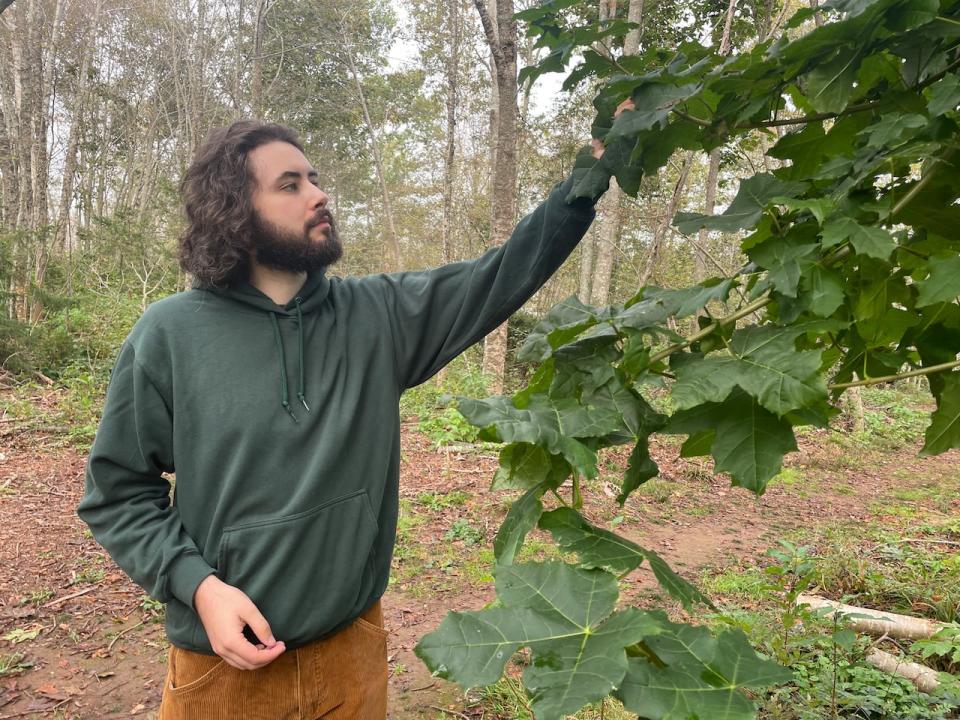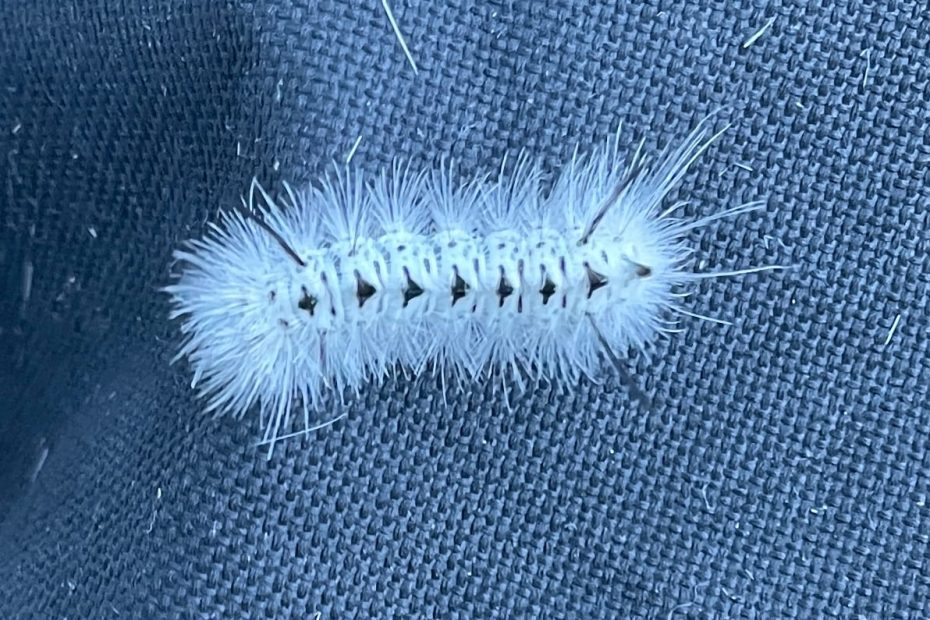Prince Edward Island's social media feeds have been flooded lately with photos of the hickory moth caterpillar, which can cause nasty skin irritations in some people if touched.
Until recently, the species had not been documented on the island, but that doesn't necessarily make it new or invasive, said Clay Cutting of the PEI Invasive Species Council.
“It appears the species is widespread on PEI,” Cutting said.
“We're getting reports from a lot of different areas on Prince Edward Island. If it was a newcomer, I would expect it to be concentrated in a single area on PEI, whereas I'm seeing it pretty much tip-to-tip.”


Clay Cutting says it's a good idea to avoid touching insects and plants you don't know. (Ken Linton/CBC)
Given the presence of the caterpillar throughout PEI, Cutting said it is more likely that it has been on the island for some time. In addition, specific circumstances have led to a spike in the population this year, which has led to the caterpillars being noticed by islanders.
The species is native to Nova Scotia and New Brunswick. The moths may have simply flown across the Northumberland Strait, he said. Even if they are new arrivals, they would not be considered invasive. Instead, this would be a natural spread from their range.
To be considered invasive, a species must also be shown to cause specific harm to the local ecosystem.
Are they poisonous?
The hickory tussock caterpillar can cause severe skin irritation in some people, but it would be going too far to call them poisonous, Cutting said.
The irritation is better described as an allergic reaction, he said, and in some people the irritation is more severe than in others.
Cutting noted that there are other caterpillars on PEI that can cause similar irritation.
One sign that touching the hickory tussock could be a problem is the bright white color and long hairs, which make the tussocks easily visible.
Caterpillars like this one, which look very flashy, want to let you know that they can cause problems if you touch them.
When you're outside, Cutting says a good rule of thumb is to avoid touching plants and insects you're not familiar with.

